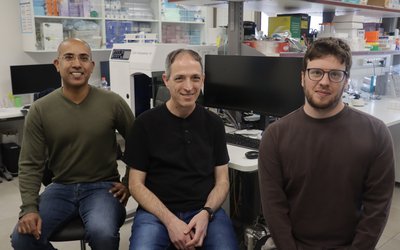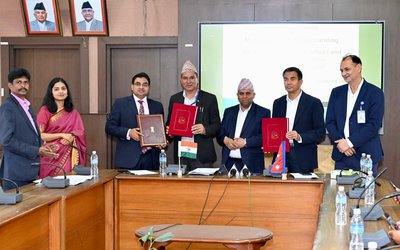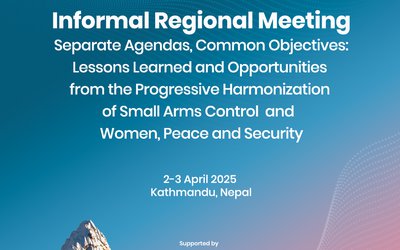
Where is your focus?
Our main focus now is to reach as many of the affected people in remote, hard-to-reach areas and as quickly as possible to beat the onset of the monsoon. And we need to do so urgently, so that people have roofs over their heads and their other urgent needs are addressed before the monsoon season starts.
What is the state of relief operation?
The much greater airlift capacity we currently have, the decentralization of logistical support through the creation of additional (5) logistics hubs, and the inclusion of the road network each contribute to our ability to speed up the flow of relief goods. Many mobile relief teams were dispatched to cover the affected areas on foot. At the same time, relief goods are being dropped off at agreed locations with the communities so they can pick them up using their traditional methods.
Are you reaching the affected communities?
We are reaching out to the affected communities via dedicated radio programmes and through mobile networks to ensure they know how and where to obtain relief. This also allows us to receive direct feedback on their needs and concerns, so that we can address them accordingly.
How many people are benefited?
To date, tens of thousands of tarpaulins were distributed; nearly 270,000 people received food; more than 300,000 people were provided with safe drinking water, etc.
How do you see the coordination with government?
Coordination between government and partners is ongoing at all levels, from national to district and community levels. We recognize that primary responsibility for the relief effort lies with the government, and we are committed to complementing the government’s relief efforts.The Chief District Officers (CDOs) and local administrations have the most detailed information about community needs. We have been coordinating distribution with them so as to ensure even distribution and avoid duplication of relief efforts.
How much resource is required now?
The relief needs remain great and we urgently need funds to be able to continue our work. Of the requested US$ 415 million to support immediate humanitarian interventions, only $22.4 million was received. This needs to be dramatically ramped up.
What is the priority now?
Shelter remains our topmost priority. Nearly 285,000 houses have been destroyed and another 230,000 thousand damaged, leaving hundreds of thousands of people without roof over their head. Other priority needs include sanitation and hygiene support, household items, medical kits and supplies, food and others. Humanitarian funding is normally channelled directly through humanitarian organizations operating in a given context.
- IME GROUP: Expands Into Paper Industry
- Mar 24, 2025
- CPN UML: Instigated By India
- Mar 23, 2025
- ADB’S CHIEF ECONOMIST: Nepal Reduces Poverty
- Mar 11, 2025
- FM DR. DEUBA: A Successful Visit
- Mar 11, 2025
- MD GHISING: Target Of Personal Grudge
- Mar 09, 2025















